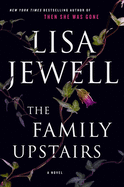
Libby has been a budget watcher her whole life. She shops at T.J. Maxx and celebrates a small raise at work by buying one eye shadow from a department store instead of her usual drugstore. Then she turns 25 and receives a letter saying she's just inherited from her birth parents a mansion on the finest street in the Chelsea area of London.
Meanwhile, Lucy receives a text saying, "The baby is 25," and urgently seeks a way to travel with her two kids and dog from France to England. The problem: she's currently homeless, has no passports or money and is hiding from the law.
Libby's and Lucy's present-day chapters alternate with accounts that take place in the past, told from the point of view of a boy named Henry. He lived with his family in the above-mentioned Chelsea mansion until his mother took in temporary boarders--and they never left. Not only that, the interlopers invited friends over and soon the strangers had taken command, imprisoning Henry's family in their own home--until one night when police arrived to find multiple dead bodies and a crying baby.
The way Lisa Jewell brings these plotlines together in The Family Upstairs continues to solidify her reputation as a master weaver of stories. She takes a hard-to-believe situation--wickedness seeping into and taking over a seemingly normal household--and makes it plausible. The story twists in unpredictable, disturbing ways, and shows how hard it is to repel evil when it has invaded one's home. --Elyse Dinh-McCrillis, blogger at Pop Culture Nerd

